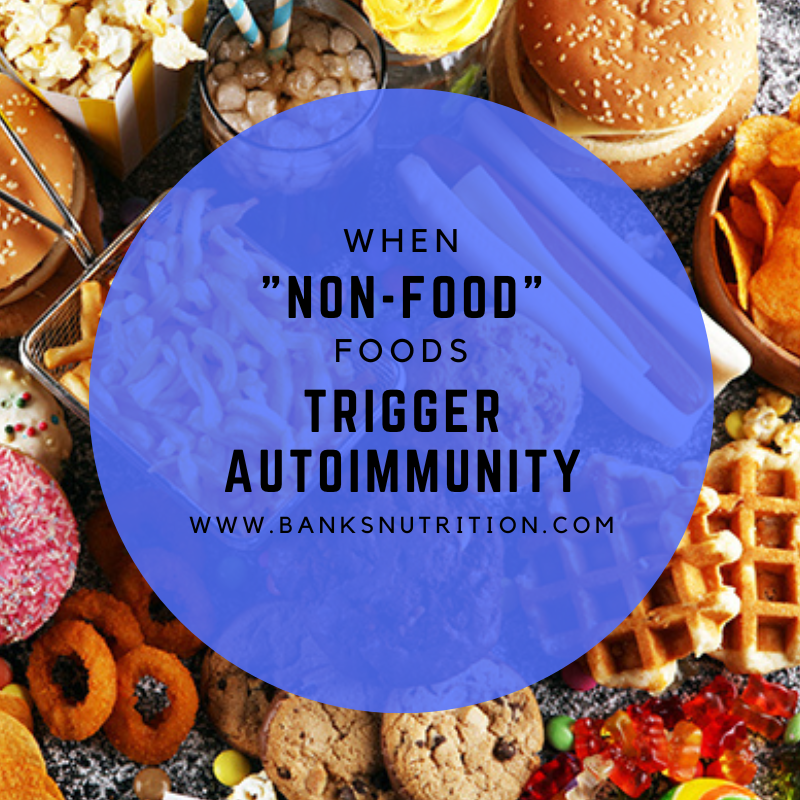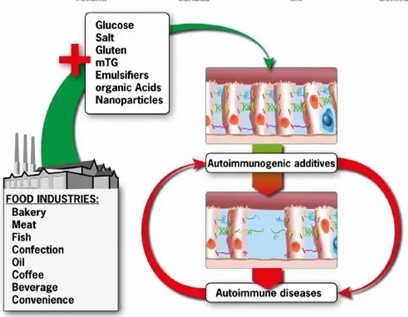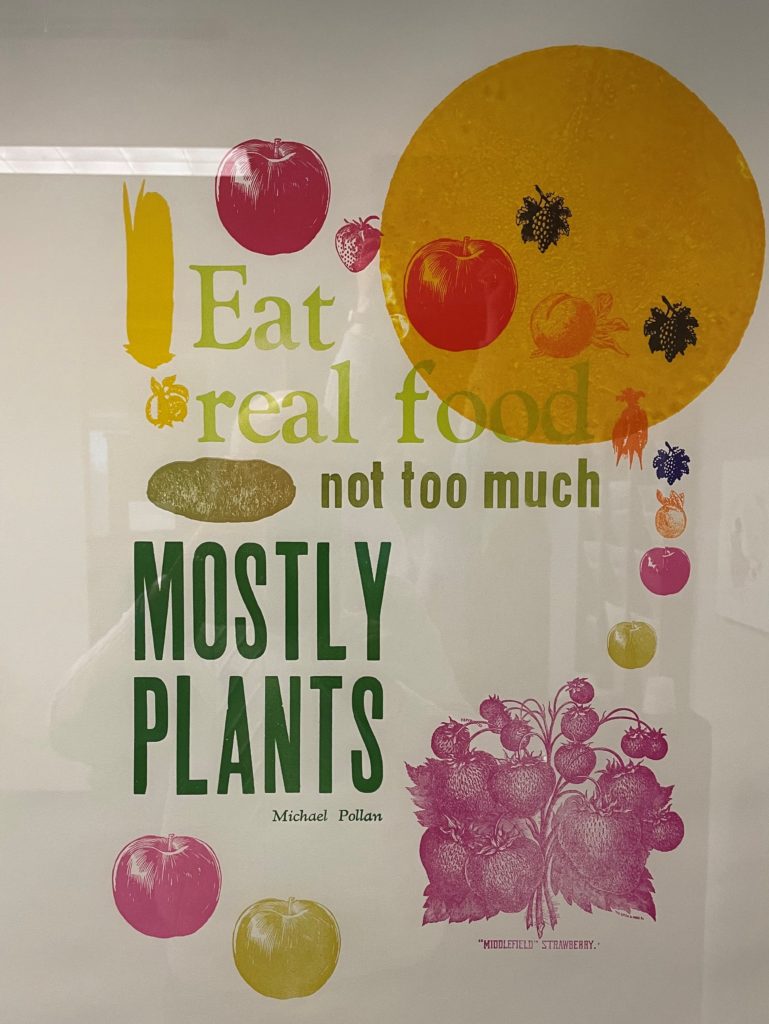
When “Non-food” Foods Trigger Autoimmunity
January 26, 2023
This title may sound like some form of double talk but it is a reality. I had a stark example of this concept last weekend traveling to Easton Maryland for our annual goose hunt with my grandson. Traveling the 185 miles up the Virginia and Maryland Eastern Shore I traveled through this large expanse of farmland, mostly crop fields but also considerable farms raising poultry and beef. In the middle of this a huge factory that processes “food” shows up.
I have always said that real food is grown or raised but here it is manufactured. This has led to new terms appearing in nutrition related health care research, industrial food additives and highly processed foods. These processes were aimed at providing a steady supply of very uniform food which has greater shelf-life. They also aim to stimulate more consumption, a questionable need in our society. Unfortunately, these processes have produced some very unhealthy outcomes, contributing to the increasing rates of autoimmune diseases being one of them.
This relationship between highly processed foods and autoimmunity has multiple mechanisms. Most relate to breaking down the gut barrier, a process typically referred to as “leaky gut”. Aaron Lerner, MD, a pediatric gastroenterologist who is a leading researcher in this area describes the process, “Glucose, salt, emulsifiers, organic solvents, gluten, microbial transglutaminase, and nanoparticles are extensively and increasingly used by the food industry, claim the manufacturers, to improve the qualities of food. However, all of the aforementioned additives increase intestinal permeability by breaching the integrity of tight junction paracellular transfer.”(1)
Inflammatory toxins from the microbes in the gut and poorly digested food particles such as peptides like those in gluten, normally are not able to reach the immune layer below the gut barrier. When they do so in high amounts they elicit an immune inflammatory and antibody response, a response which can get out of hand and cause the immune system to begin to react to self-tissue which may look similar to a food peptide such as gluten or casein in dairy.
Glucose
Glucose and other sweeteners are added to processed food as they activate the “eat” drive from the brain. They serve no other purpose as an additive than increasing consumption. However, glucose in higher amounts has been shown to stimulate Th17 cells.(2) These are immune cells that respond to pathogens in hollow spaces such as the gut, mouth, and nasal passages. They do so by inducing inflammation and increased signaling to B cells which make antibodies. A high level of activity in Th17 cells has been associated with triggering autoimmune activation.
Salt
Higher salt consumption triggers T cell immune responses similar to glucose. It increases Th17 T cell activity, activity which increases the risk of immune reaction against self-tissue, autoimmunity.(3)
Emulsifiers
Emulsifiers are broadly used in processed foods and are perhaps one of the most punitive additives. Their purpose is too keep different food molecules like fat and water based evenly mixed together improving the texture of food. They serve no nutritive function. Examples of emulsifiers include xanthan gum, locust bean gum, carrageenan, pectin, starch, and chitosan.

The problem with emulsifiers is that they also “emulsify” the gut barrier causing leaky gut which opens the door for inflammatory toxins from gut bacteria and undigested food peptides to enter the immune layer of the intestinal wall. As discussed above that is a primary mechanism by which autoimmunity can be triggered.
The smoother and even a processed food is, the more it is emulsified. Unfortunately with consumption of many foods with these additives, the more the gut barrier is emulsified. Defying logic, emulsifiers have been approved for use in food in spite of their association with autoimmunity and the absence of safety testing before approval.(4)
Organic solvents
Organic solvents in food are commonly alcohols such as ethanol, heptane, and hexane. They keep particles dissolved together helping create uniform texture and they function as preservatives. Similar to emulsifiers they “dissolve” the gut barrier to a degree increasing autoimmune activation.
Microbial transglutaminase
Microbial transglutaminases (mTG) are a common food additive which have been dubbed “meat glue”. They are often used to make a uniform meat product from small scraps. They are common in luncheon meats, imitation crab meat, meatballs, baked goods, cheese, yogurt, hot dogs, beef, tofu and other similar foods.
mTG is thought to increase the risk of autoimmunity but linking or “gluing” particles such as peptides on microbes to one of our tissue peptides. This creates a “neoantigen” making pieces of our own tissue look like the microbe which the immune system should make antibodies against triggering autoimmunity.(5)
Nanoparticles
Nanoparticles are another type of additive to create uniform food texture. Examples include anti-caking agents and fillers. They are also associated with causing the gut barrier to breakdown and leak increasing autoimmune risk.(6)
Summary

Some will read this and begin reading ingredient lists to look for these additives that have been associated with triggering autoimmunity. That exercise will yield the conclusion that these additives are in all processed foods. The short cut is to remember that food is grown or raised not manufactured. A great tutorial in this area is to take that drive up the Eastern Shore to appreciate that concept.
A good friend and colleague gave me a gift several years ago which I have prominently displayed in the office. It is a quote from the book In Defense of Food, by Michael Pollan, Eat real food, not too much, mostly plants. Sometimes the answer is just that simple.
- Lerner A, Matthias T. Changes in intestinal tight junction permeability associated with industrial food additives explain the rising incidence of autoimmune disease. Autoimmunity Reviews, 2015;14:479–489.
- Zhang et al. High Glucose Intake Exacerbates Autoimmunity through Reactive-Oxygen-Species-Mediated TGF-b Cytokine Activation. Immunity, 2019;51:671–681.
- Sharif et al. The role of dietary sodium in autoimmune diseases: The salty truth. Autoimmunity Reviews, 2018;17:1069-1073.
- Sebestyén E, Csák K. Who will carry out the tests that would be necessary for proper safety evaluation of food emulsifiers? Food Science and Human Wellness, 2019;8:126–135.
- Lerner A, Matthias T. Microbial transglutaminase: A new potential player in celiac disease. Clinical Immunology, 2019;199:37-43.
- Ghebretatios et al. Nanoparticles in the Food Industry and Their Impact on Human Gut Microbiome and Diseases. Int J Mol Sci, 2021;22(4):1942.